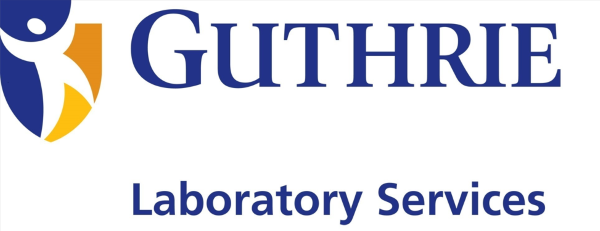| A B C D E F G H I J K L M N O P Q R S T U V W X Y Z # |
Immune Cell Function (NY)
Test Code17836
CPT Codes
86352
Preferred Specimen
1 mL whole blood collected in a sodium heparin (green-top) tube
This test is restricted for transplant patients only.
This test is restricted for transplant patients only.
Minimum Volume
0.5 mL
Instructions
Clients: Contact the lab prior to ordering for special logistics arrangements.
PSC: Follow Short Stability Protocol.
The Immune Cell Function Assay must be setup within 30 hours of collection.
The test is setup Tuesday through Friday from 11:00 AM to 6:30 PM. Samples should be collected Monday to Thursday.
Samples received beyond the 30 hour stability will be rejected.
PSC: Follow Short Stability Protocol.
The Immune Cell Function Assay must be setup within 30 hours of collection.
The test is setup Tuesday through Friday from 11:00 AM to 6:30 PM. Samples should be collected Monday to Thursday.
Samples received beyond the 30 hour stability will be rejected.
Transport Container
Sodium heparin (green-top) tube
Transport Temperature
Room temperature
Specimen Stability
Room temperature: 30 hours
Refrigerated: Unacceptable
Frozen: Unacceptable
Refrigerated: Unacceptable
Frozen: Unacceptable
Reject Criteria (Eg, hemolysis? Lipemia? Thaw/Other?)
Gross hemolysis • Clotted • Samples received >30 hours after collection • If specimen viability is <80%, test will not be run
Methodology
Luminescent Detection
FDA Status
This test code is for New York patient testing. For non-New York patient testing, use test code 15435.
Setup Schedule
Tues-Fri
Reference Range
| ≤225 ng/mL ATP | Low Immune Cell Response | |
| 226-524 ng/mL ATP | Moderate Immune Cell Response | |
| ≥525 ng/mL ATP | Strong Immune Cell Response | |
Clinical Significance
This non-pathogen-specific immune function assay detects cell-mediated immunity by measuring intracellular adenosine triphosphate (iATP) levels in stimulated CD4 lymphocytes. This test may be useful in assessing the immunosuppressive status of solid organ transplant (SOT) recipients to help predict the risk of infection and optimize immunosuppressive regimens [1,2].
The risk of infection after transplantation depends upon the epidemiologic exposures and the net state of immunosuppression [3]. Excessive immunosuppression increases the risk of infection; inadequate immunosuppression increases the risk of graft rejection. Because CD4 lymphocytes mediate cell-mediated immunity (CMI), quantification of CD4 activation may be helpful in assessing the immunosuppression status after SOT. Early responses of CD4 lymphocytes can be quantified by measuring iATP production in stimulated CD4 cells. By assessing CMI, this assay may help estimate the aggregate impact of multiple factors, such as the use of immune suppressants and underlying clinical conditions, on a patient's immune status [1,2].
This assay cannot be used as a diagnostic test for infection or graft rejection and does not replace diagnostic assays (eg, culture, viral load, and biopsy) to inform clinical decisions [2]. Without standardized strategies to simultaneously assess a patient's risk for infection and graft rejection, clinical judgment remains crucial for individualizing patient management. The value of this assay for assessing risk of infection [4] and rejection [4,5] in SOT recipients needs further study.
Results are most accurate if testing is performed on the day of blood draw. Performing the assay ≥1 day after the draw may lead to falsely low iATP levels [6].
The results of this test should be interpreted in the context of pertinent clinical and family history and physical examination findings.
References
1. ImmuKnow immune cell function assay. Eurofins Viracor. Accessed March 1, 2022. https://www.eurofins-viracor.com/clinical/our-testing/immuknow/
2. Kowalski RJ, et al. Transplantation. 2006;82(5):663-668.
3. Fishman JA. Am J Transplant. 2017;17(4):856-879.
4. Ling X, et al. Transplantation. 2012;93(7):737-743.
5. Rodrigo E, et al. Liver Transpl. 2012;18(10):1245-1253.
6. Suviolahti E, et al. Transplantation. 2012;94(12):1243-1249.
The risk of infection after transplantation depends upon the epidemiologic exposures and the net state of immunosuppression [3]. Excessive immunosuppression increases the risk of infection; inadequate immunosuppression increases the risk of graft rejection. Because CD4 lymphocytes mediate cell-mediated immunity (CMI), quantification of CD4 activation may be helpful in assessing the immunosuppression status after SOT. Early responses of CD4 lymphocytes can be quantified by measuring iATP production in stimulated CD4 cells. By assessing CMI, this assay may help estimate the aggregate impact of multiple factors, such as the use of immune suppressants and underlying clinical conditions, on a patient's immune status [1,2].
This assay cannot be used as a diagnostic test for infection or graft rejection and does not replace diagnostic assays (eg, culture, viral load, and biopsy) to inform clinical decisions [2]. Without standardized strategies to simultaneously assess a patient's risk for infection and graft rejection, clinical judgment remains crucial for individualizing patient management. The value of this assay for assessing risk of infection [4] and rejection [4,5] in SOT recipients needs further study.
Results are most accurate if testing is performed on the day of blood draw. Performing the assay ≥1 day after the draw may lead to falsely low iATP levels [6].
The results of this test should be interpreted in the context of pertinent clinical and family history and physical examination findings.
References
1. ImmuKnow immune cell function assay. Eurofins Viracor. Accessed March 1, 2022. https://www.eurofins-viracor.com/clinical/our-testing/immuknow/
2. Kowalski RJ, et al. Transplantation. 2006;82(5):663-668.
3. Fishman JA. Am J Transplant. 2017;17(4):856-879.
4. Ling X, et al. Transplantation. 2012;93(7):737-743.
5. Rodrigo E, et al. Liver Transpl. 2012;18(10):1245-1253.
6. Suviolahti E, et al. Transplantation. 2012;94(12):1243-1249.
Performing Laboratory
| Quest Diagnostics Nichols Institute-Chantilly VA |
| 14225 Newbrook Drive |
| Chantilly, VA 20151-2228 |

